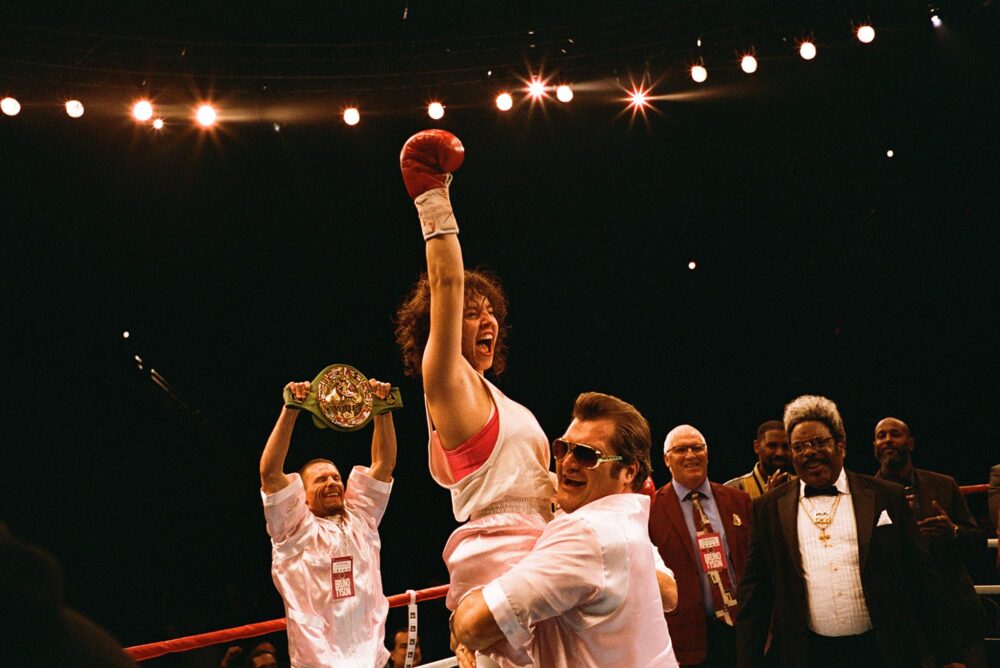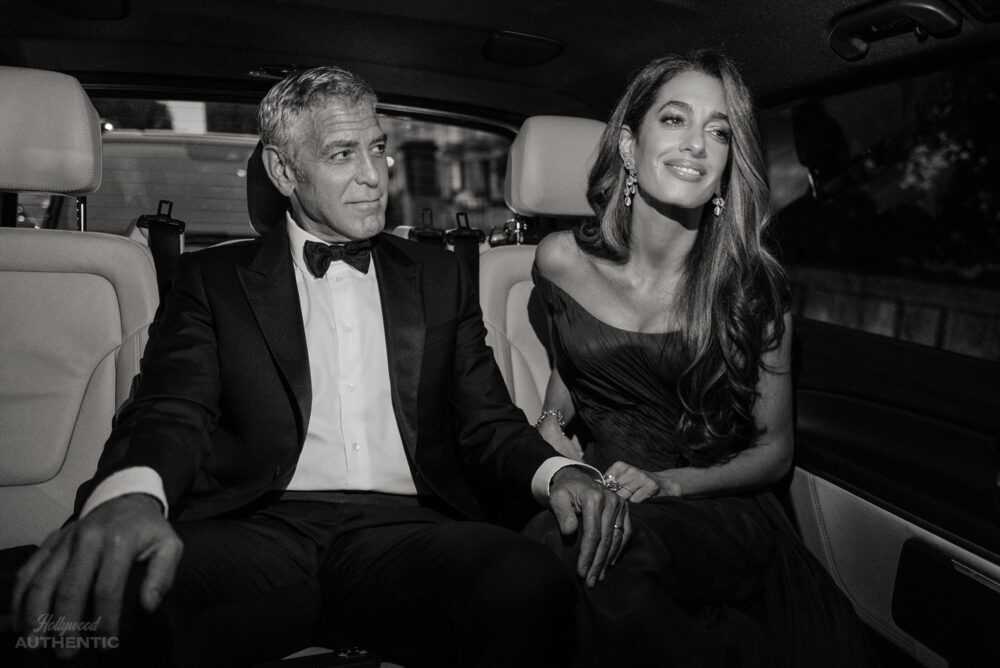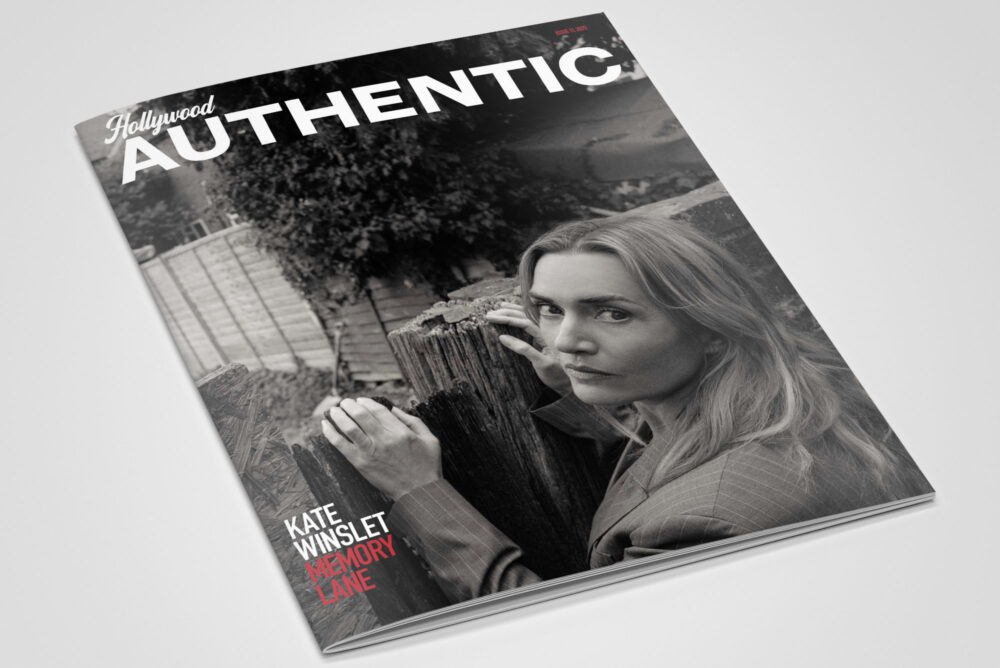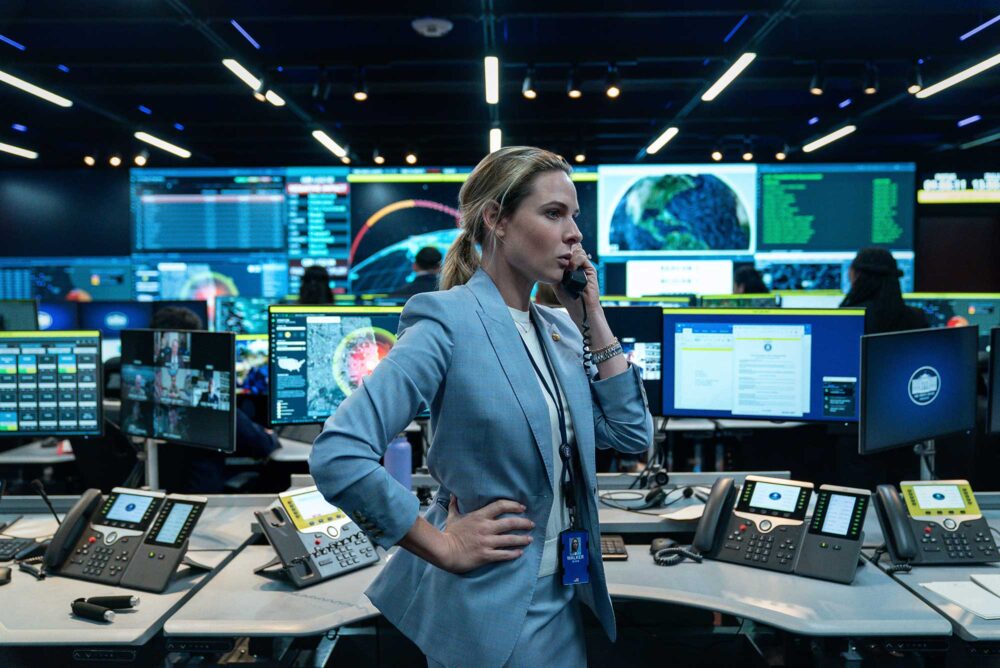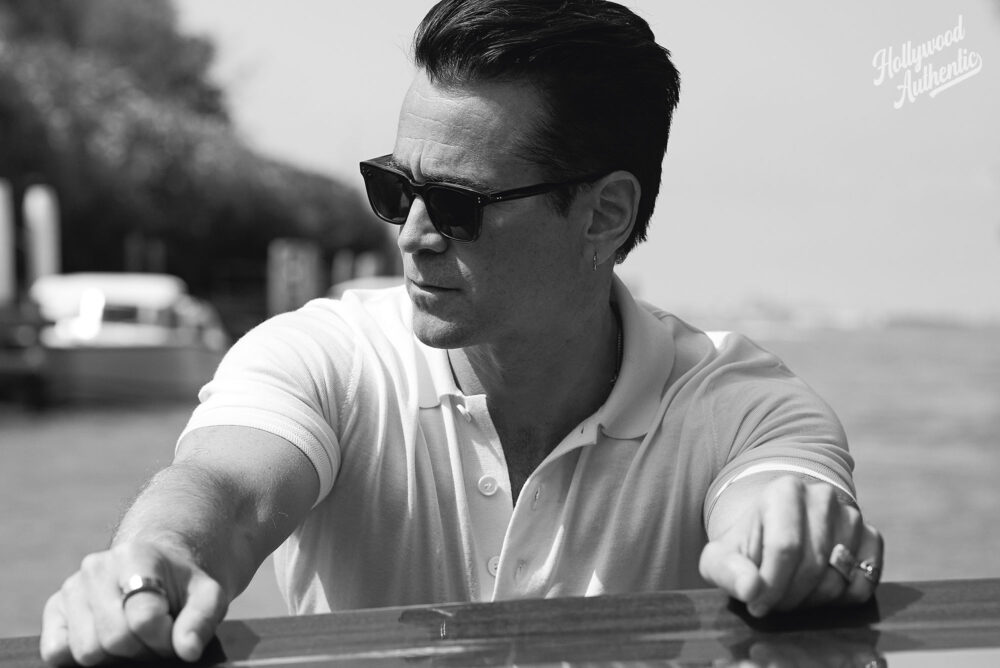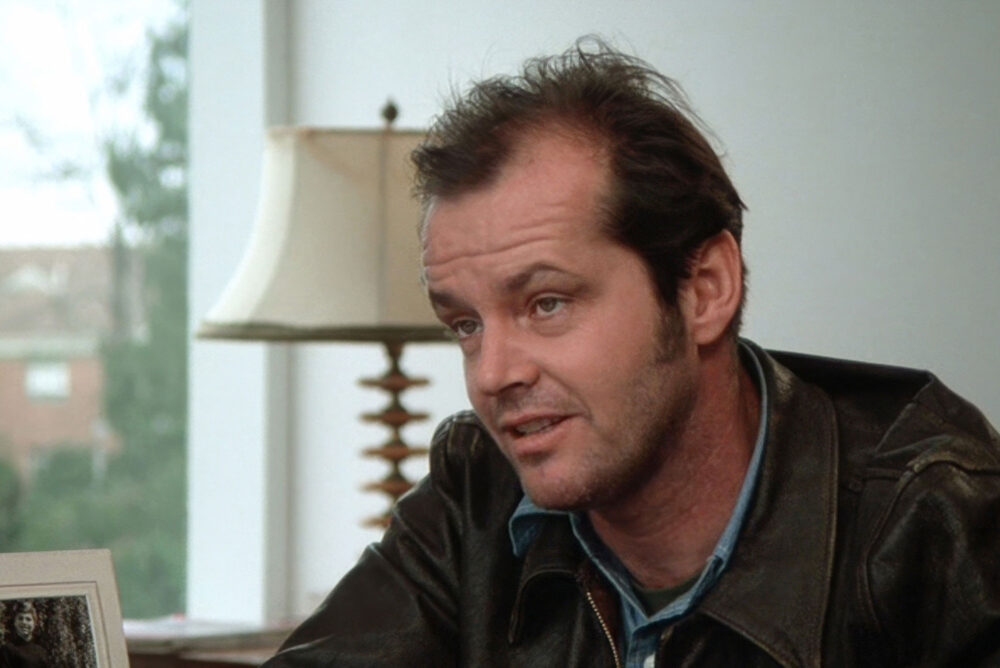Words by ARIANNE PHILLIPS
As told to JEREMY LANGMEAD
When Pulp Fiction was released 30 years ago, it wasn’t long before the wardrobe worn by Uma Thurman’s gangster wife Mia Wallace influenced a generation of designers: 1995’s catwalks from Miu Miu to Alexander McQueen boasted a multitude of over-sized white shirts fit for a twist-dancing, milkshake-sipping bad girl. The movie even prompted sell-outs of Chanel’s iconic nail colour, Rouge Noir (Vamp in the US). Here, Arianne Phillips sits down with Betsy Heimann to explore the road to creating such an iconic moment on celluloid.
‘On the eve of Pulp Fiction’s 30th anniversary, I had the good fortune to discuss the film’s iconic and culture-shifting costume design with one of our most respected and revered costume designers, Betsy Heimann. Her stellar body of work underscores generational filmmaking at its finest, with her designs featured in Reservoir Dogs, Get Shorty, Jerry Maguire, Almost Famous, Vanilla Sky, Lady in the Water, Green Book and many other memorable films. Betsy’s costume design for Pulp Fiction remains as relevant today as when the film premiered in 1994.
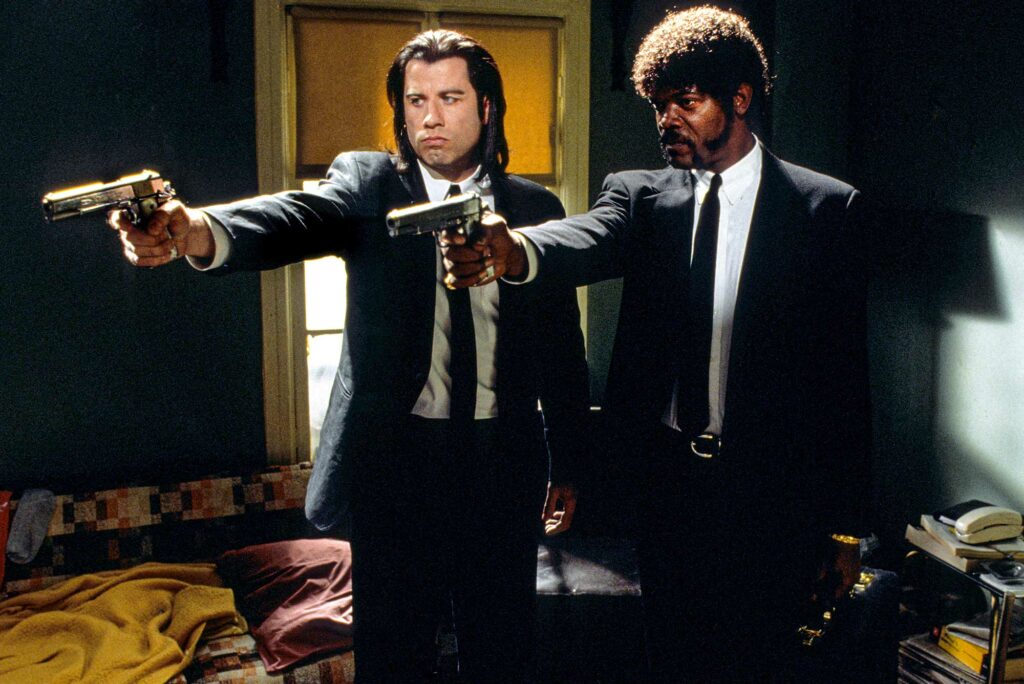
Betsy is an artist; a truly remarkable and talented costume designer whose brilliant work with Quentin Tarantino significantly contributed to the enduring success of his first two films. It also benefitted me 26 years later when I was invited to design Quentin’s Once Upon a Time in…Hollywood. I was so excited to speak to Betsy about the early days with Quentin, their process creating the visual language that we have come to know unmistakably as a “Tarantino film”, and designing and imagining the world of Pulp Fiction.’
AP: Watching Pulp Fiction again this week I thought about you so much, and what we have in common. I worked with Quentin on his last film, Once Upon a Time in…Hollywood, and I really have to hand it to you that you really are a part of the visual language that Quentin is so known for – whether it’s the Hawaiian shirt on Tim Roth in Pulp Fiction (a look that re-surfaces on Brad Pitt in Once Upon a Time in…Hollywood) or Quentin’s love of a leather jacket and a T-shirt, or a black-and-white motif… this is the Tarantino language that you both created together. I’m curious to learn from you what your process was like with the young Quentin when you worked together on Reservoir Dogs. How did that happen?
BH: I met [producer] Lawrence Bender at a New Year’s Eve party and we just got chatting and he invited me to a screening of a small indie film that he had worked on, and then it evolved into him sending me scripts and asking what did I think it would cost to do the costumes for them. And I would help out with the budgets. And then, one day, he sent me this script for Reservoir Dogs. It was fascinating. I had a costume career before Reservoir Dogs – I worked my way up from seamstress – but I had never read anything like this. I said to myself, you know, they’re gonna get good actors for this because there are pages of dialogue. So when Lawrence called me up and asked, ‘So what do you think?’ I said, ‘Err, who’s doing the costumes for this movie?’ He said, ‘I don’t know yet.’ And I said, ‘I’ll do it. I wanna do it.’ He told me they didn’t have any money. And I told him I didn’t care. That’s how it happened.
AP: And what was your impression of Quentin when you first met him?
BH: Oh, his enthusiasm was so contagious. And he was very organised. I remember being very impressed that he was so prepared. He was very grateful. And I just thought, I like this kid and I like being with him, and I love his enthusiasm. And then I went over to his apartment and we started watching movies together. Quentin was always visual. We’d go through the whole script visually. And our language was the language of film. I remember one conversation most vividly about Pulp Fiction. It was about Butch, about Bruce Willis’ costume. I said I think he should wear a leather jacket. He said, yes, I want a leather jacket like Nick Nolte’s in Who’ll Stop the Rain; so I sourced a similar old brown pigskin suede one, put it in the car, and Quentin and I drove out to Malibu where we had a meeting with Bruce. Demi [Moore] was there and Bruce brought all of these 1980s and 1990s leather jackets he liked – he must have had 10, but they were all oversized – and mine looked quite skimpy in comparison. But Quentin liked it, so Bruce tried it on. He put it on and said to me, ‘Well, are you gonna drag it behind a truck?’ And I said, ‘Oh, you mean age it? Yes, and with you in it.’
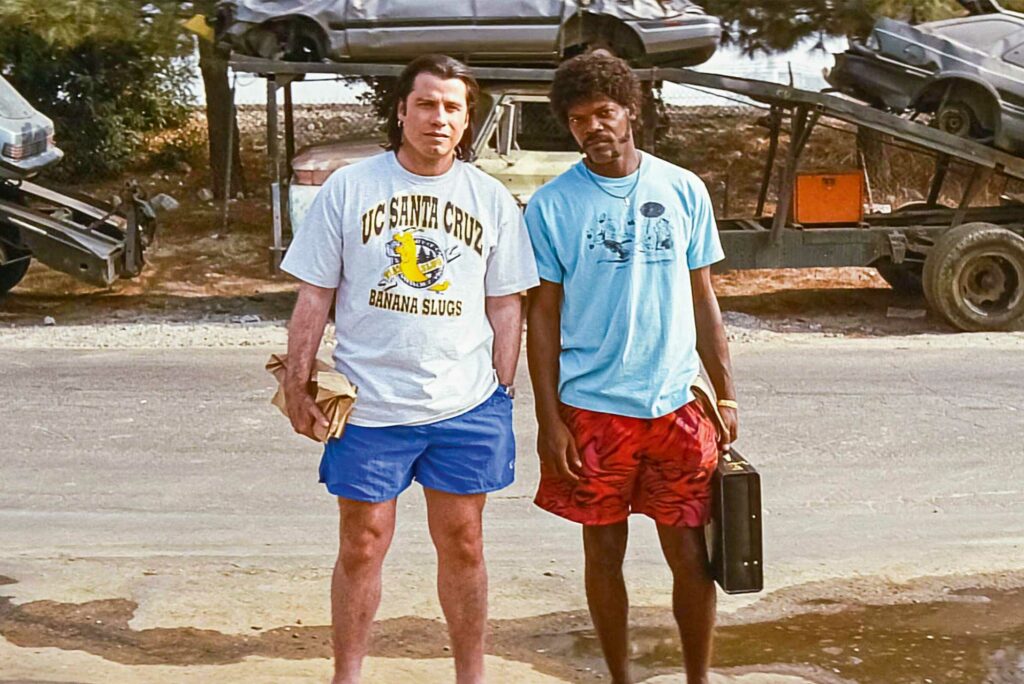
AP: I love it. Another of the things that I was really noticing when rewatching it was the day players and all the ancillary characters are wonderful characters whether it’s Christopher Walken, Harvey Keitel, Amanda Plummer, Eric Stoltz or Kathy Griffin. You did such a beautiful job of letting us know who these characters were in such a quick, short time period, the costumes really allowed us to just get there immediately. You infused so much storytelling into your costumes, it’s so impressive.
BH: Well, thank you very much. Yes, it was a big cast. As with Reservoir Dogs. We had a very big warehouse that we prepped and shot in. When I would get the things together for the fitting, I would call Quentin and he’d come in and he’d peek his head in and he would say ‘great’. But we had discussed it all before. One of the things that he and I did is watch anime cartoons. And one of them was Speed Racer. And I remembered that when we were prepping Pulp Fiction.
AP: And you put Eric Stoltz in that T-shirt, right?
BH: Yes. I said to Quentin, I think Speed Racer is the way to go. For me, I always tell a story about the character to get inspiration. And he said that he had one in his closet and so he went and got the T-shirt. There was a lot of spontaneous back and forth.
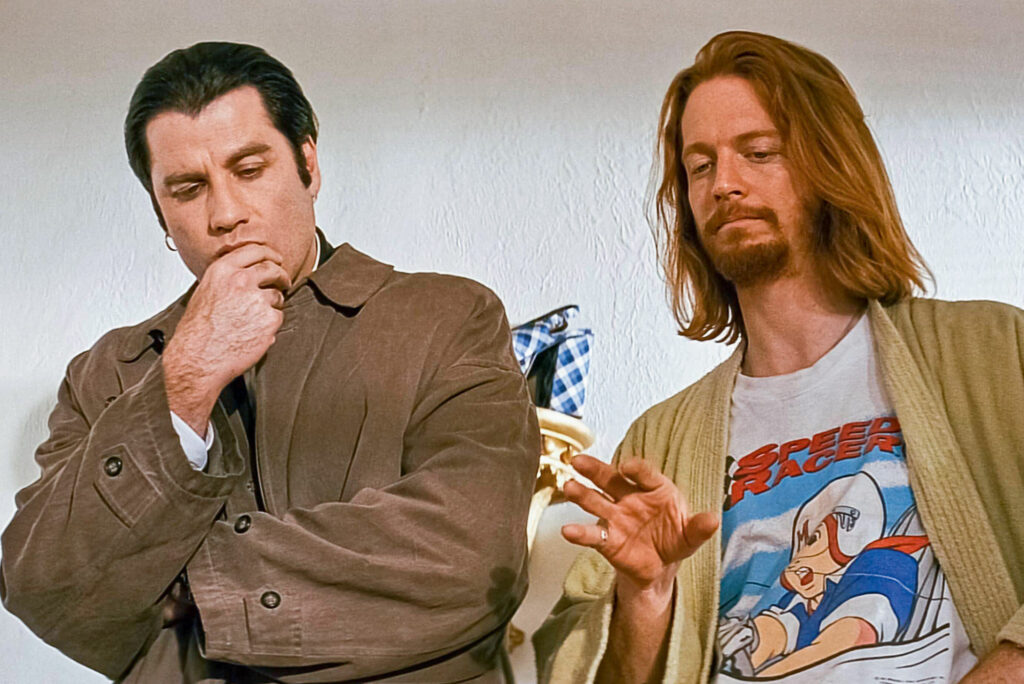
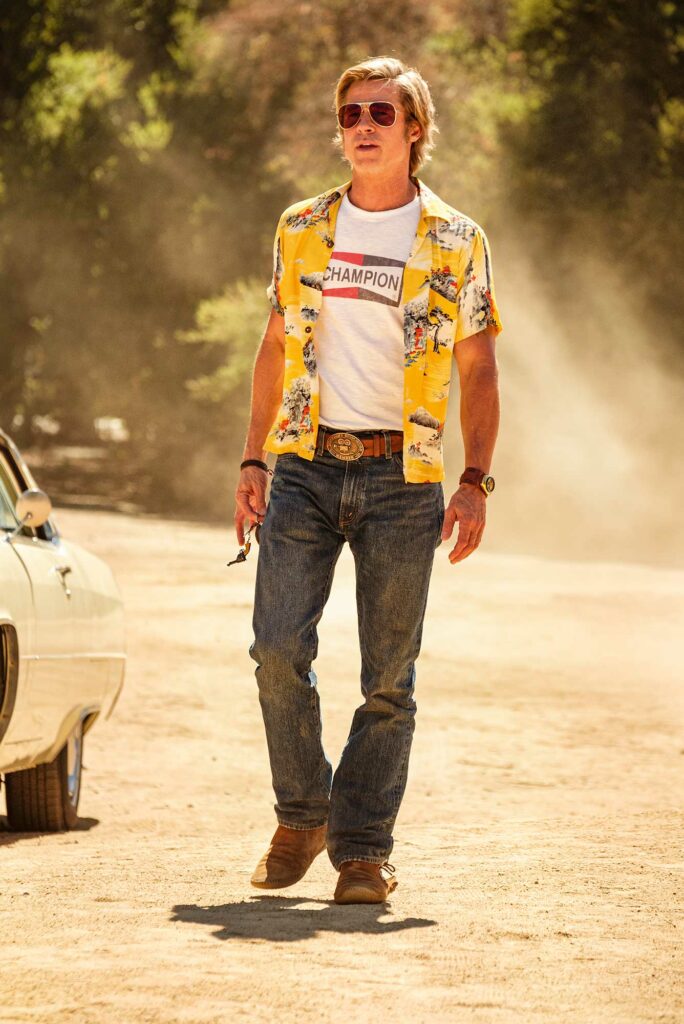
AP: These graphic T-shirts are a part of Quentin’s language. In my experience with him, he had a lot of graphic T-shirt ideas for Once Upon a Time in…Hollywood.
BH: He has the same respect for the graphic T-shirt that I do. It’s not just, let’s put this guy in a graphic T-shirt, it has to mean something. It’s the same on all the films I’ve worked on. On Jerry Maguire, for example, when he is writing his mission statement, I figured he went to Notre Dame College. And so I called the Student Union and asked where do you guys all hang out? And I found the Little Bar, and I got hold of a T-shirt from them, and that’s the one Maguire is wearing when he writes his mission statement – his college t-shirt, the one he wore when he was full of ideals and full of how he was going to change the world… So every T-shirt for me has meaning.
AP: That’s so great because it gives us little Easter eggs of reality. For me, watching Pulp Fiction, and seeing the Santa Cruz Banana Slugs college T-shirt that Vincent [John Travolta] wears was, like, nobody knows about that T-shirt unless they’ve been there. But Quentin wanted to get across that Jimmy had some connection with Santa Cruz. And so you see how costume can give a character an instant backstory – it really adds another layer and a texture. It’s the same with other clues you used in Reservoir Dogs. Tell us how the black suits came about in that film?
BH: Well, for Reservoir Dogs, my budget was $10,000. So I said, ‘Guys, I can give you four suits with this budget for the film. And I need to keep one clean’.
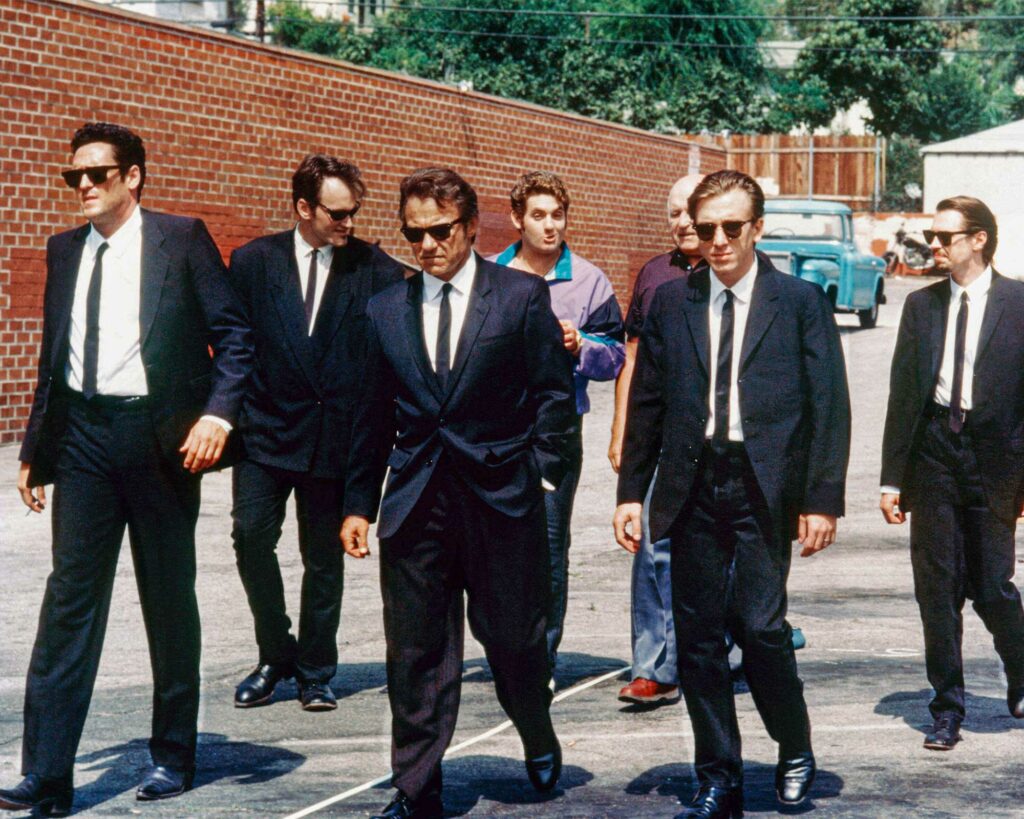
AP: Four suits for all?
BH: Right. But, you know, we were shooting multiple action scenes with them. So the fact of the matter is that only Harvey Keitel and, briefly, Quentin, wore actual suits. We couldn’t afford them. So I found this stash of 10 black Beatle jackets at American Rag – which is now very hip, but it was a thrift store at the time – and I thought these would work on the younger guys, like Tim Roth and Steve Buscemi. They were great jackets. And then I teamed them with Beatle boots and black jeans. And Quentin was, like, ‘What?’ And I said, ‘Trust me, nobody’s gonna know the difference. It’s gonna be fabulous’.
AP: That was amazing foresight to know that it would work so well on screen and not show.
BH: Well, that’s what we do. That’s what we know as costume designers. The other thing I will tell you is that not all of the jackets people were wearing were black. Some of them were navy, some of them were dark grey. I spent a little bit of time with our cinematographer, Andrzej Sekula, and I would say, ‘Okay, look at this grey suit jacket and look at this black suit jacket. How are you lighting this picture? Are they gonna photograph the same?’ And he would say, yes, and I would trust him.
AP: I think that was ingenious. And it actually gave it a modernity that a regular suit might not have. And a black jean was probably great for all those action scenes because they could put pads under them and you wouldn’t see anything. And back to Pulp Fiction, and they’re also wearing black suits, what was your budget like then?
BH: $36,000. I remember sitting with Quentin at Barney’s Beanery, and I said to him, ‘I really think that Vincent and Jules are Reservoir Dogs.’ And he thought about it. He goes, ‘You know, I like that. I like that’. This time I could do actual suits because now these guys have a little more money. I could do a linen suit with Vincent so that he always looked kind of a mess; and with Jules [Samuel L Jackson] I wanted a very slim-fitting narrow lapel, which was not that popular back then. So I went downtown and I found this Perry Ellis suit that I could get at a discount. And the collars of the shirts were very important to me, too. With Reservoir Dogs, each one of those guys had a different shirt with a different collar and a different width of tie in proportion to the width of their chest. This is all very technical, but it gives them a difference. So in Pulp Fiction, I did that again.
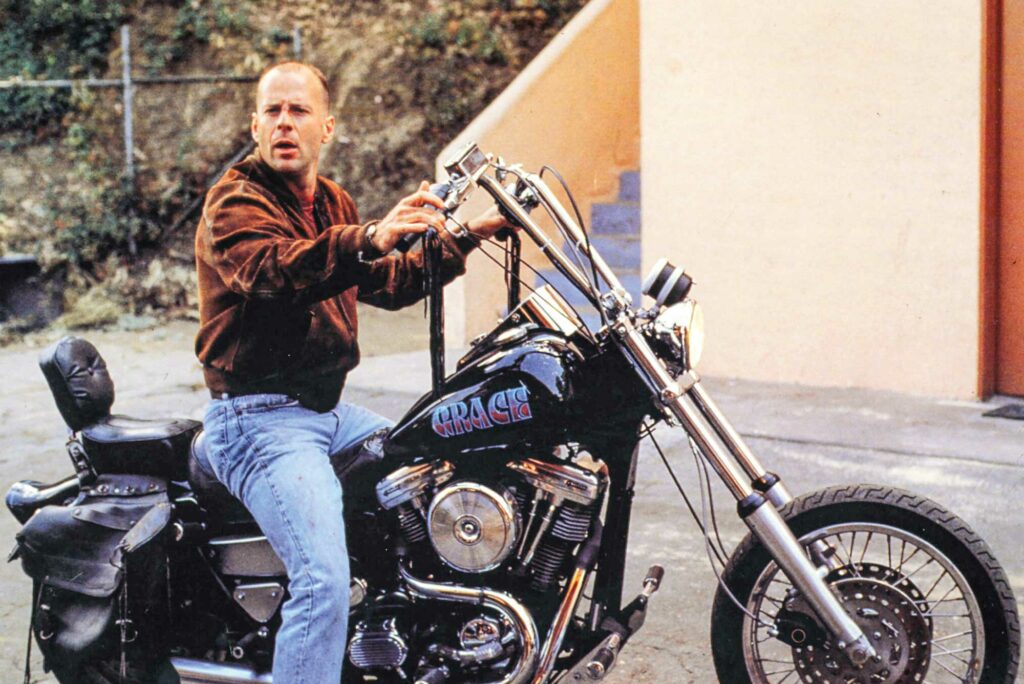
AP: And so Jules had a very narrow collared shirt because he’s the preacher?
BH: Right. And then there’s a bit of a cowboy theme in Pulp Fiction, too. Amanda Plummer has the cowboy boot dialogue, and Jules calls Tim Roth ‘Ringo’ – Gregory Peck played Jimmy Ringo in The Gunfighter. They’re all gunfighters. And so for me there was this kind of a Western influence in the costume. And we all used to shop at King’s Western Wear in the Valley and that’s where I got the idea for the bolo tie. I thought, well, here’s Vincent thinking he’s cool. He’s got his bolo tie on. And Mia [Wallace, played by Uma Thurman] says to him, ‘How are you doing, cowboy?’ And he refers back to her as a cowgirl. So these are all messages to me. So I came up with that idea and Quentin liked it.
AP: A lot of those choices influenced the way people dress then and now. Let’s talk a little bit about Mia. I really was taken by her proportions and how you used them. How did it come to be that her trousers were short, like pedal pushers? The proportions of her outfit work so beautifully, especially in the twist-dancing scene… the way that you tailored that shirt, and it had the French cuff with the cufflink, and the black-and-white motif. I really love the beautiful symmetry of design in that scene. They’re dancing and they look like cake toppers. That scene is burned in our minds forever. It really kicked off a trend.
BH: Well I thought that Mia was really a Reservoir Dog, but she couldn’t express that because she was married to the boss and she had to be chic and glamorous; the eye candy. But on her date with Vincent she wanted to show him that she was one of the guys. And so I said, I wanted her to wear the black and white. But Uma is very tall, and we didn’t have any money, and all the pants weren’t long enough for her, and so I said, ‘What the heck, let’s just cut ‘em off’. I called Chanel and I said the magic words, Uma Thurman – they are magic words, things fall from the heavens – and I told them I needed these gold ballet slippers I had seen in a magazine and they lent us them. And then the shirt had to give her some shape and I wanted it to be oversized because I wanted it to say ‘I’ve got money but I’m also one of you; I’m a bad girl’. And then we added the bandana underneath. So it was another cowboy reference.
AP: And then Mia’s bob. It all works in tandem: the short pants and the oversized shirt, and then that black bob, it’s just so successful.
BH: The bob is all Quentin. It’s based on the old film star Louise Brooks and that’s what he wanted. And so knowing that, you start with that, instead of hoping that it’ll work with what you’re doing, you start with that. That’s the reality. And the reality is the inspiration.
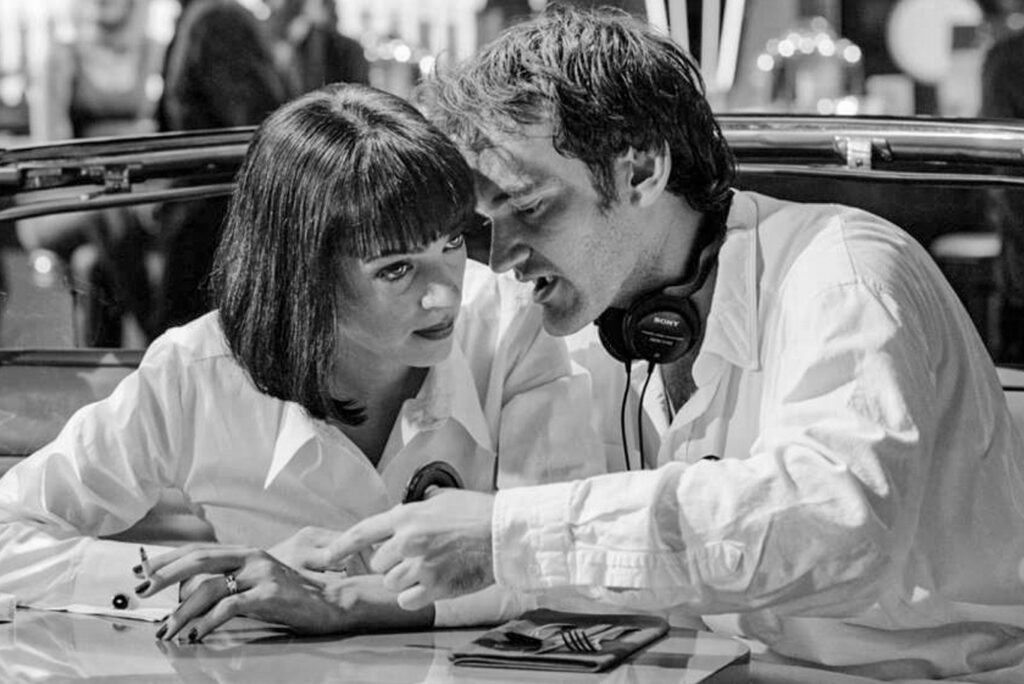
AP: Something else I love, which you do beautifully, is using a costume piece more than once to tell the story; when it starts on one character, then another character wears it. So, for example, we have Vincent wearing his black suit and that wonderful trench coat. And then we have Mia coming back from dinner with him and she has the trench coat on. That’s just beautiful. It says so much. It still looks so great today.
BH: I love that you noticed the raincoat, because that was something I was really, really adamant about. And Quentin liked the idea. I knew that I wanted her dancing around in that big coat and then she could find the drugs in the pocket. I wanted to make it more of a natural thing and so I had to get that coat on him in order to later get it on her. And so I searched everywhere for one of those old gabardine raincoats from the 1950s and found it at Palace Costume.
AP: It worked so well. And I love the colour… it would be easy for it to be a black raincoat but then we would really not see the detail. Also when she puts it on, it’s clearly not her coat. And what’s amazing, again, is the way these characters dressed in Pulp Fiction still inspires the way people dress today. It’s the marriage of your trueness to the characters, but also the fact that you and Quentin really tapped into a fantasy of larger-than-life characters that a part of us would like to be. And elements of the way they looked are attainable: you both turned regular items into iconic ones by the way you used them on the characters.
BH: Yes, I suppose it is the connection that the public makes with the characters. There’s a poignancy to Mia Wallace. I mean, she has to wear the trench coat as she has to find the drugs in the pocket. So therefore she could just ruffle through his coat that’s left on the couch, or she can have it on and reach in the pocket. And these are motions and actions that the audience can relate to.
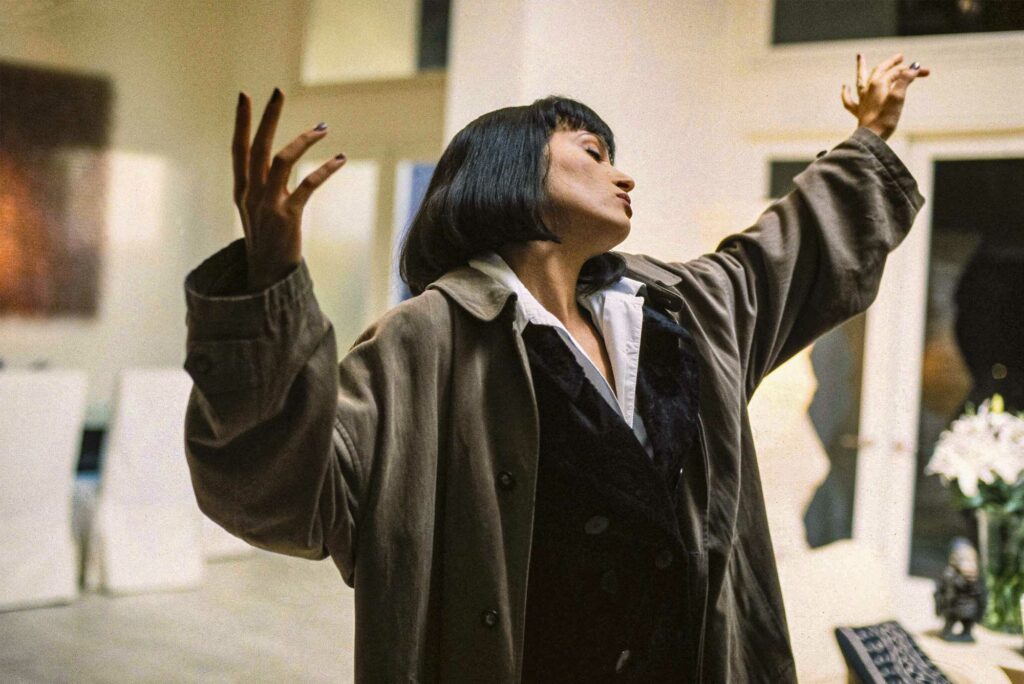
AP: That’s because these are the choices you made in respect to how you saw these characters. The reason for its influence on fashion is that this film is such a great reflection of what was happening in our culture, and it just resonated with people. These characters are unattainable, but people can create their own versions and make it accessible because the design is so uncluttered, it’s so specific.
This film also is indelibly a part of ‘the film language’ with other costume designers and directors. I’m sure you’ve seen that your work is often referenced or recreated. In the 1990s I was doing a lot of music videos, and I know that this was cited as the pinnacle of cool for so many directors; we’ve seen iterations of it in music videos and fashion magazines. Just this last Halloween, I was in New York and I was invited to a party where everyone was supposed to come dressed as a character from Pulp Fiction. There were 500 people dressed as these characters you helped create…
BH: Who knew that 30 years later we would all still want to dress like the baddies in Pulp Fiction [laughs]. But I’m only as good as my director. I’m inspired by my director. I get all my ideas from the energy that’s coming out of my director. And Quentin was on fire. He was on fire with these two movies, and they were original, and they were different from anything I ever read.
Words by ARIANNE PHILLIPS
As told to JEREMY LANGMEAD
All images © 2000 Block 2 Pictures Inc. © 2019 Jet Tone Contents Inc.
Reservoir Dogs / Pulp Fiction / Once Upon A Time in…Hollywood


